Big Oil's "shameful victory" over First Nations Australians' quest for self determination


· 11 min read
If you’ve been following my work for a while you’ll know that I’m very interested in the topic of degrowth and how we can transition back within the planetary boundaries in order to avoid ecological and civilisational collapse.
Time and time again evidence shows that radical democracy is the mechanism by which we can do this. So, it is also interesting to me to see where our democracies are being undermined. Who, where and how is this happening? And what can we do to stop it?
Sadly, a recent Australian referendum gave me the opportunity to look into this further. The case study below relates to the enshrinement of a First Nation’s Voice to Parliament in the Australian Constitution, but the forces at play to subvert the result exist in over 100 countries. They have made their presence felt in the UK, Canada, Latin America, the US and many more places. While this case study relates specifically to Indigenous rights, this ‘Shadowy Global Network’ typically spends its time and energy paving the way for the interests of big business including delaying action on climate change.
The lessons from this experience in Australia apply across the world.
To First Nations Australians, I’m so very, very sorry.
Figure 1. Indigenous Australia flag on map of Australia with the word ‘sorry’ written on it
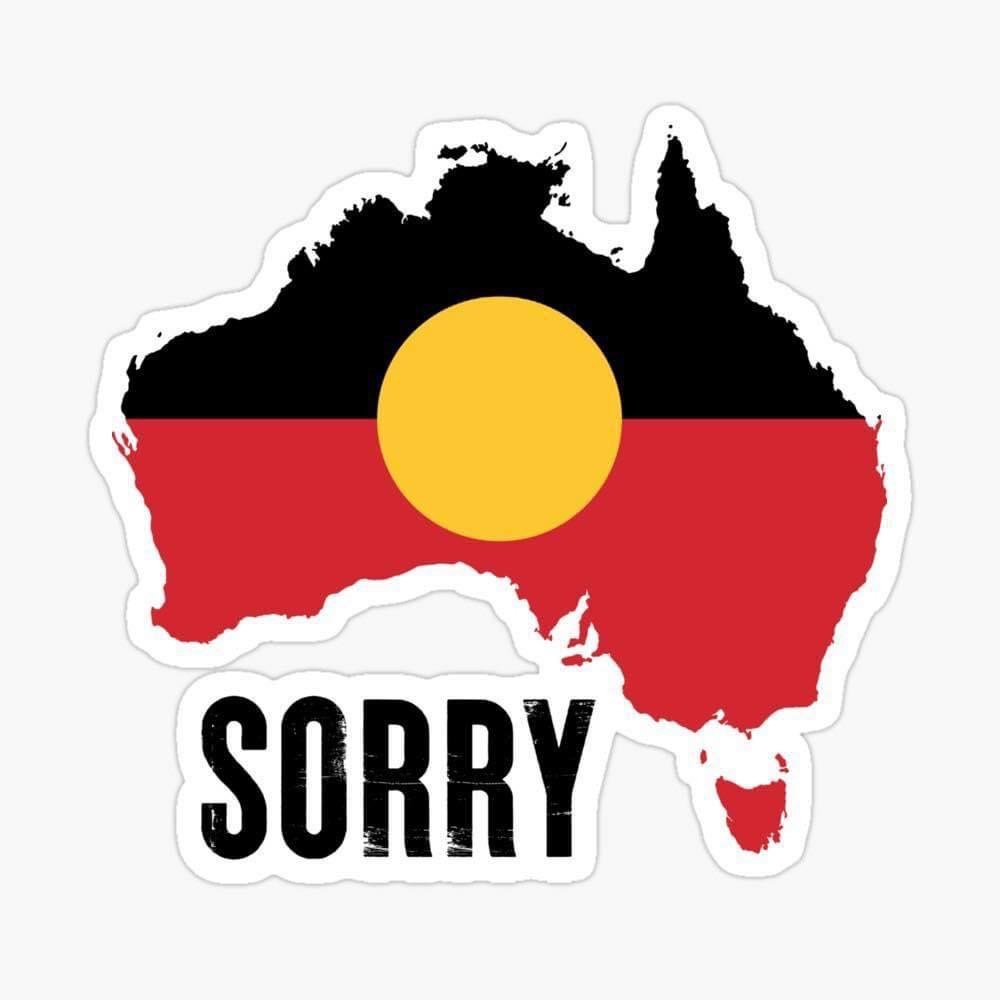
Source: artist unknown
On Saturday, 14th October 2023, Australians went to the ballot box to vote on a referendum. The question posed to voters was:
A Proposed Law: to alter the Constitution to recognise the First Peoples of Australia by establishing an Aboriginal and Torres Strait Islander Voice.
Do you approve this proposed alteration?
Voters then had to write ‘yes’ or ‘no’ in a white square on the ballot.
This referendum was instigated by Australian First Nations communities in consultation with constitutional experts, via the 2017 ‘Uluru Statement From The Heart’. The Statement From The Heart is an invitation from a group of First Nations Australians to non-Indigenous Australians, where they called for “the establishment of a First Nations Voice enshrined in the Constitution.” According to the Australian Human Rights Commission, the Voice would be “a constitutionally enshrined representative mechanism to provide expert advice to Parliament about laws and policies that affect Aboriginal and Torres Strait Islander peoples.” Many people felt the Voice didn't go far enough:
Frankly, the Voice is a proposal so pathetically understated that I’m amazed most Indigenous people are settling for it. After all, I helped design it as something so modest that no reasonable non-Indigenous Australian could reject it. More fool me.
Indigenous activist, Noel Pearson.
‘A no vote will ‘bring shame upon us’ and signal reconciliation is no longer viable
Despite polling showing the ‘yes’ vote held a greater than 60% majority up until April of 2023, on Saturday, 14th October 2023, Australia voted ‘no’ to a First Nations Voice to Parliament, with a 60.2% majority.
April marked the launch of the Atlas Network’s ADVANCE ‘no’ media campaign. Founded in 1981, the Atlas Network is a global network of right-wing think tanks founded to "win the war of ideas” by promoting privatisation, ‘free’-markets, small government, lower taxes, individual freedom and other right-wing ideology. This little-known network is enormously powerful. Its creator, Antony Fisher, perfected the think tank technique in the UK before rolling it out globally:
Famed “free market” economist Milton Friedman would later say that “the U-turn in British policy executed by Margaret Thatcher owes more to Fisher than any other individual.”
Source: Meet the Shadowy Global Network Vilifying Climate Protesters
Figure 2. Altas Network partners around the globe
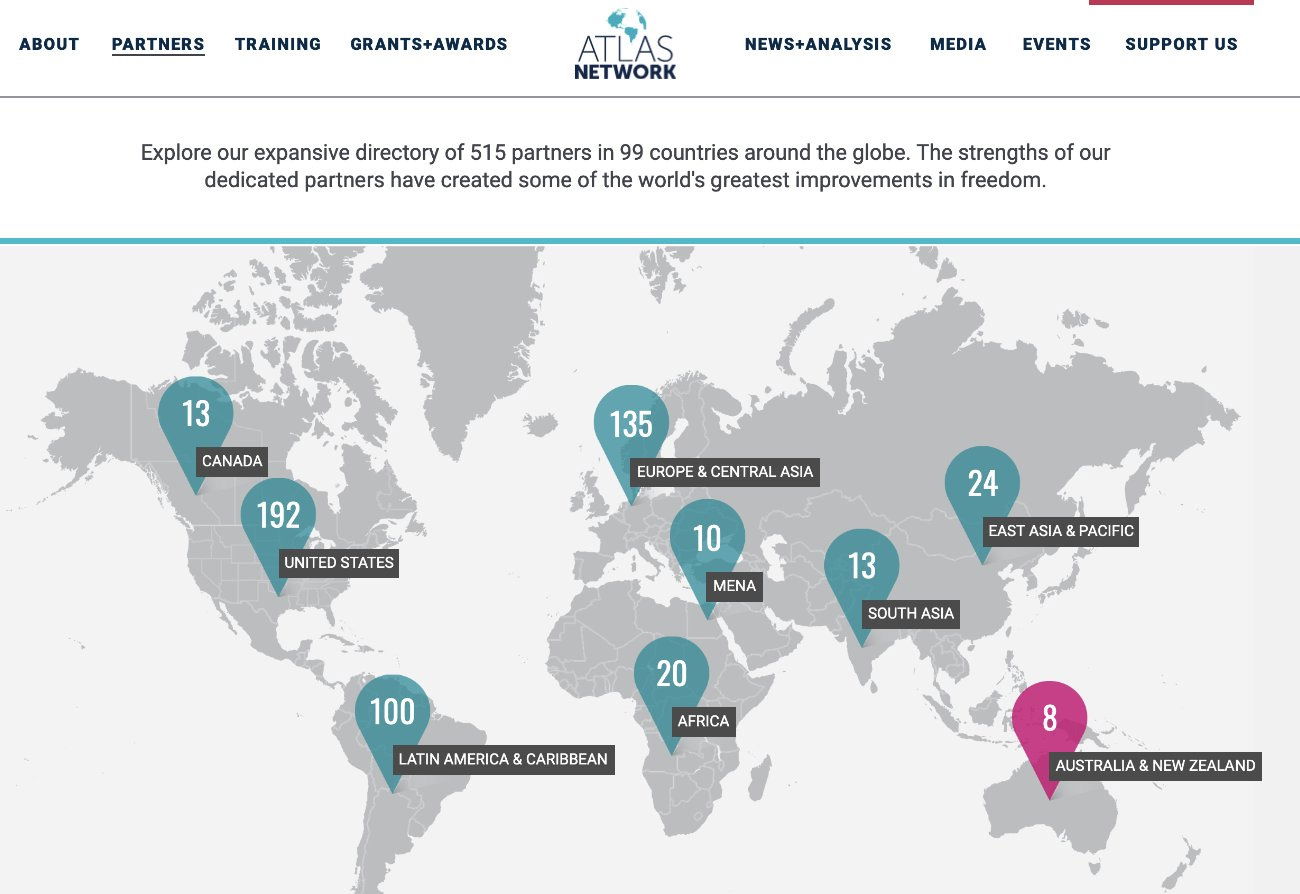
Source: Jeremy Walker on X
The Atlas Network, described as a “think tank that creates think tanks”, spans over 100 countries and more than 550 think tanks. In the US its partners include the Heritage Foundation, the Cato Institute, and the Manhattan Institute. In the UK the Institute of Economic Affairs is in its network. In Australia its partners include the Institute for Public Affairs and The Centre for Independent Studies (to which Rupert Murdoch, Shell, BHP, and Rio Tinto provided its foundational grants).
To understand more about The Atlas Network, how it was formed and its links to the fossil fuel industry, this is an excellent piece: ‘Meet the Shadowy Global Network Vilifying Climate Protesters’. Political economy researcher, Dr Jeremy Walker, has also been studying the Atlas Network and their role in delaying climate action and produced this insightful report into the role of the Atlas Network on the Voice referendum, which I cite regularly throughout this piece.
In essence, the Atlas network of think tanks is designed to:
generate a constant flow of easily read outputs, duly amplified by aligned media to influence public opinion and shape government policy. Flooding the public sphere with constantly repackaged ‘opinion’ pieces, ‘research’ papers, submissions to government inquiries, Facebook memes and shock-jock outrage, these agenda-setting policy campaigns present to the citizen as a diverse array of opinion from multiple independent sources on a wide set of policy issues, such that it would be reasonable to accept some of these views as one’s own, or at least believe they are widely held by fellow citizens.
Source: ‘Silencing the Voice: the fossil-fuelled Atlas Network’s Campaign against Constitutional Recognition of Indigenous Australia’, Dr Jeremy Walker
The network’s tactics have been incredibly effective at moving politics across the world to be more aligned with business interests, including by stalling progress on greenhouse gas emissions reductions for decades.
The ADVANCE ‘no’ campaign was supported by the Atlas Network think tanks The Centre for Independent Studies, the Institute of Public Affairs and the Australian conference of the international far-right Conservative Political Action Conference. After ADVANCE launched the ‘no’ campaign Australian voters’ support for the Voice fell from 60% in April to around 40% at the time of the vote.
Figure 3. Support for Australia's indigenous vote over time
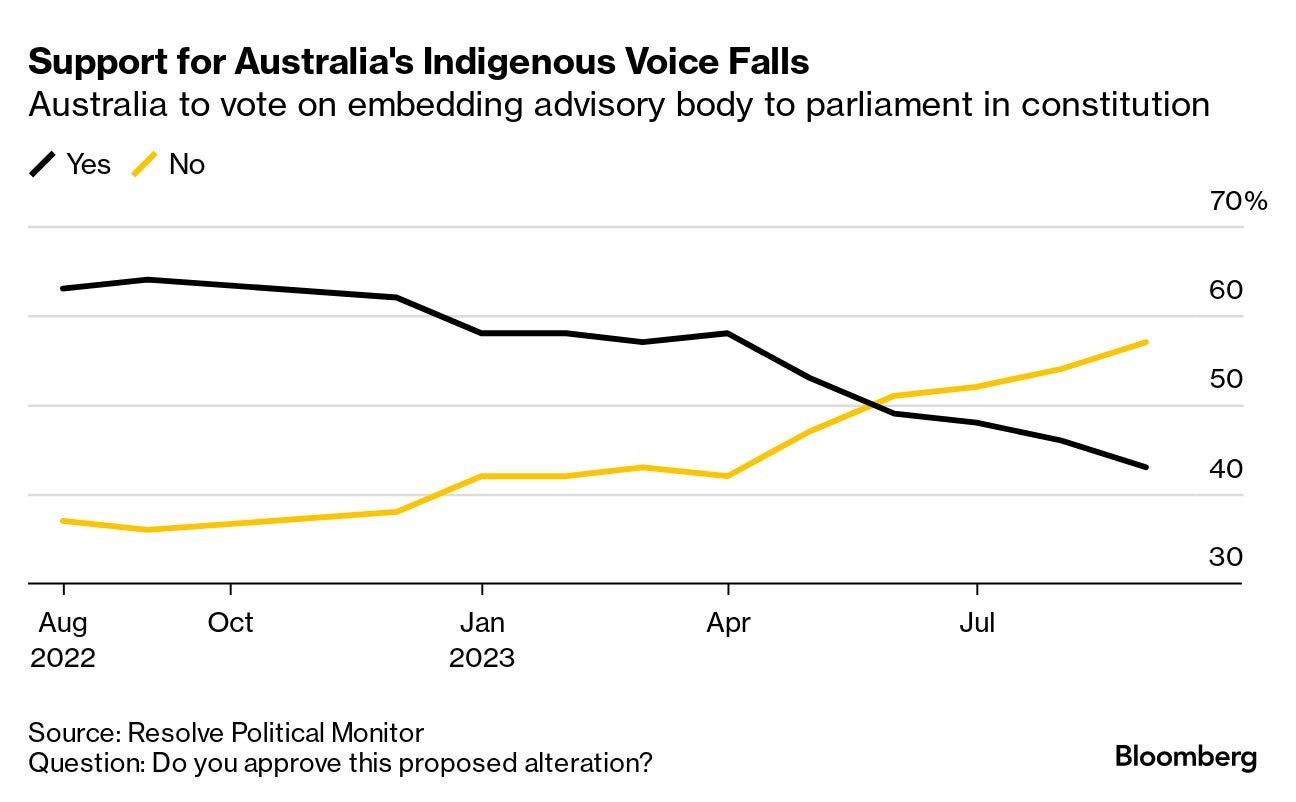
The following organisations were directly behind the ‘no’ campaign (the details of the funding of these organisations do not need to be disclosed until next year):
ADVANCE, which ran the Fair Australia campaign. The campaign claimed the Voice goes too far. Both ADVANCE and Fair Australia campaign advertising was “Authorised by Matthew Sheahan, Advance Aus Ltd”. On their website ADVANCE states that they are:
a movement that represents the Australian majority, ADVANCE has the power to put your voice out front so you're heard. It then influences policy and removes far-left control, so that together, we see our nation centred again on the the freedom of mainstream values.
ADVANCE claims to represent ‘ordinary’ Australians and aggressively campaigns against ‘woke inner-city elites’. This is despite funding records for the year ended 30th June 2022 showing that ADVANCE is funded by the “elite of the elite”, the top 0.01%. Eight of the ten largest donors were worth $100 million or more. It is worth noting here that “Two-thirds of the directors of the fake ‘grassroots’ campaign network have filed fake residential addresses with regulators; none of its affiliated arms has a telephone number — and the entire operation is ‘based’ at a fake national headquarters.”
Not Enough, which campaigned on the Voice not going far enough. Their campaign advertising was “Authorised by Matthew Sheahan, Advance Aus Ltd”.
Australians for Unity, which claimed the Voice “will divide Australians by race and completely change our democracy”. Their website states that they are “supporting the powerful Fair Australia ‘No’ campaign, led by Senator Jacinta Nampijinpa Price and Nyunggai Warren Mundine AO.” Their campaign advertising was “Authorised by Nyunggai Warren Mundine AO, Australians For Unity Ltd”. Nyunggai Warren Mundine AO is a director of Altas’ The Centre for Independent Studies.
Referendum News, which falsely claims to be an impartial news site, despite being “Authorised by Matthew Sheahan, Advance Aus Ltd”.
Christians for Equality, whose spokesperson was Senator Jacinta Nampijinpa Price. Nampijinpa Price is also associated with Altas think tank, The Centre for Independent Studies. They claimed, “The Voice will divide us, not unite us.” The campaign was “Authorised by Matthew Sheahan, Advance Aus Ltd”.
Recognise a Better Way, helmed by former politician and adviser Warren Mundine, who, as noted above is a director of Atlas’s The Centre for Independent Studies.
Broadly, the ‘no’ campaign's tactics to swing the vote relied on tried and tested Atlas techniques from around the world. In essence, it could be summed up in two key tactics:
Flooding the media with coverage of a small number of Indigenous spokespeople to create the impression that there is widespread opposition to the proposed legal reforms (this has also been applied in Canada).
The simultaneous running of social media strategies targeting different groups with contradictory messages: Fair Australia claims the Voice goes too far, Not Enough claims it doesn't go far enough, and Referendum News has the facade of being impartial, when in fact people are “seeing no campaign messages masquerading as news”. This tactic has been applied in the US in recent years with great effect.
The ‘no’ campaign used Indigenous Australians as spokespeople, despite overwhelming support by First Nations Australians for the Voice.
Figure 4. Advance's campaign against the Voice
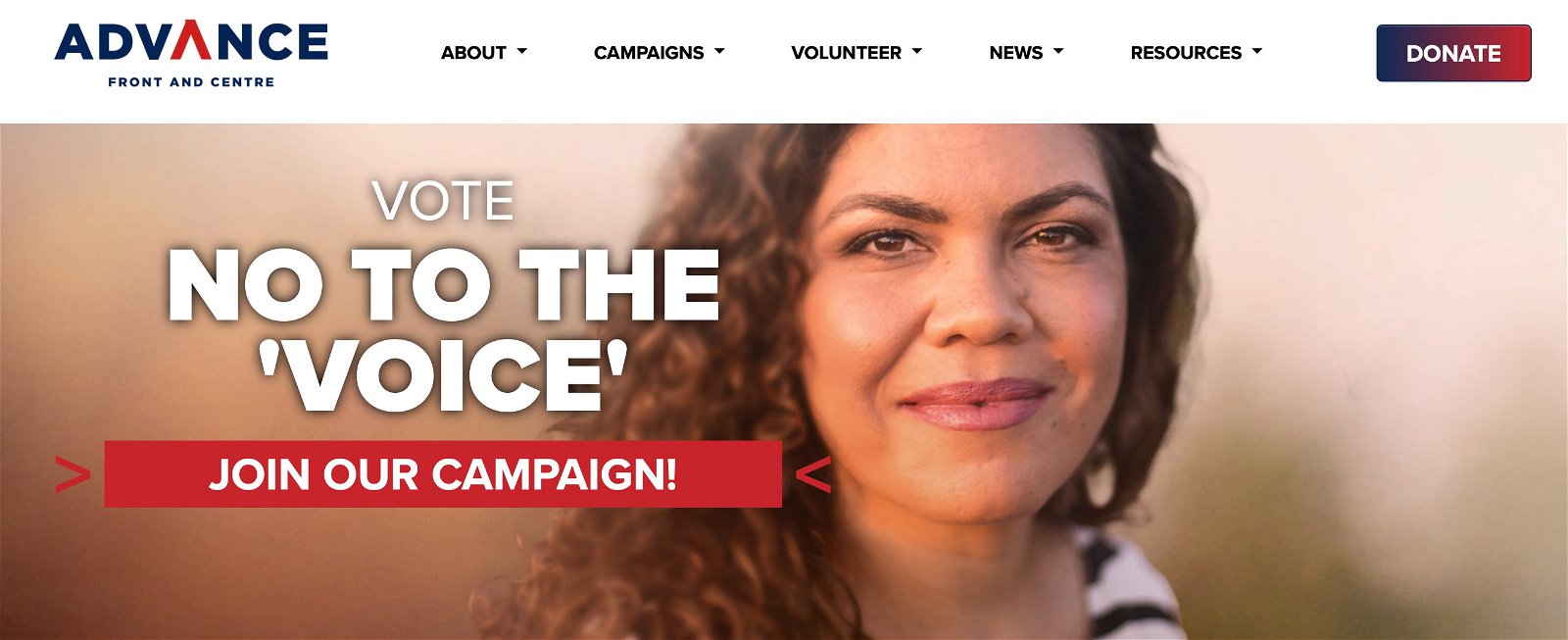
Source: ADVANCE website
Figure 5. Fair Australia's campaign against the Voice
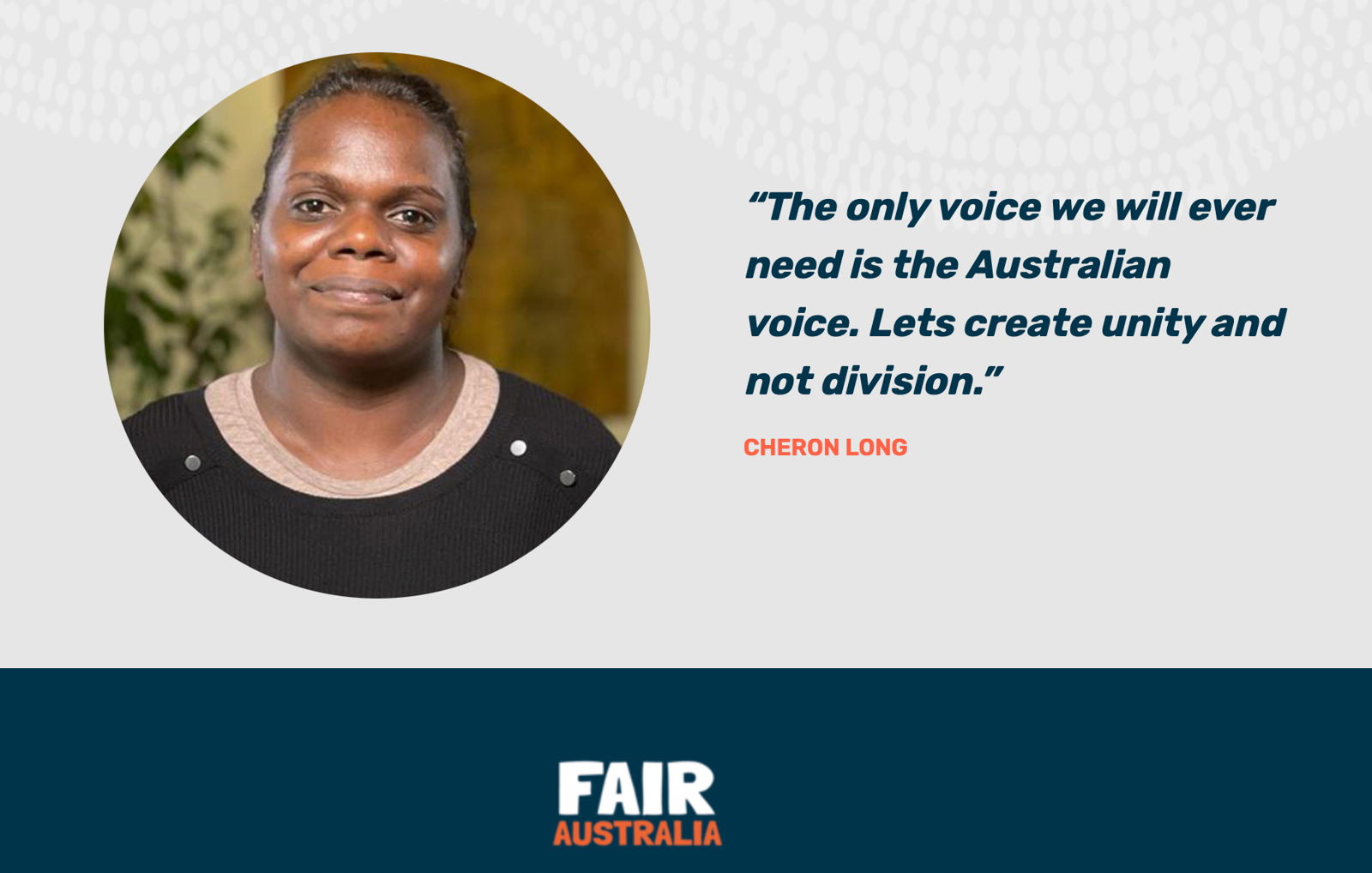
The ‘no’ campaign used Indigenous Australians as spokespeople, despite overwhelming support by First Nations Australians for the Voice. Source: Fair Australia website
Specifically in relation to the Fair Australia campaign, it was a disinformation campaign, exploiting the absence of truth in political campaign laws. Fair Australia declared that the Voice is “divisive, dangerous, expensive and not fair”. During their campaign, they claimed that not all Indigenous Australians wanted the Voice, using Indigenous Australians as their spokespeople and as the faces of their campaign, which was proved to be incorrect when Indigenous Australians overwhelmingly voted ‘yes’ to the Voice. They misrepresented what the Voice would be, describing it as a “constitutionally enshrined say over parliament and government” rather than the representative body on decisions affecting First Nations people it actually was. Fair Australia used misleading figures to represent the funding for First Nations peoples and they stoked culture wars to turn people away from the good intentions of the Voice: “They’ve come for Australia Day, and they’re coming for more” (Australia Day is celebrated on the day the First Fleet arrived, which is considered a day of mourning by many First Nations people. In lei of this fact there is a call by many to ‘change the date’).
The motives behind the well-orchestrated ‘no’ campaign are in alignment with the Atlas network’s long history of malevolent influence in our democratic processes:
The Australian Atlas organisations have for decades worked in concert with their US-based counterparts to challenge the long-established scientific confirmation of global warming, and to oppose government policies to phase out fossil-fuel extraction and combustion, such as carbon taxation, government support for renewable energy, and an effective UN climate treaty.
Source: ‘Silencing the Voice: the fossil-fuelled Atlas Network’s Campaign against Constitutional Recognition of Indigenous Australia’, Dr. Jeremy Walker
Put simply, these think tanks, and the corporations and elite who fund them feared that the Voice would lead to a greater capacity for Indigenous communities to protect the Country. This would ultimately result in fewer permissions for extractive industries (primarily fossil fuels) in which their funders typically have a direct stake.
Due in no small part to the relentless work of Dr Jeremy Walker, it appears that the veil is being lifted on these secretive think tanks. After observing a week of mourning, a statement released ‘for Our People and Country’ by @UluruStatement on Twitter/X states:
This shameful victory belongs to the Institute of Public Affairs, the Centre for Independent Studies and mainstream media.
As always, the solutions are simple, but not easy. It starts with greater awareness of the disproportionate influence of these shady think tanks, with the ultimate aim of removing money from politics and the implementation of laws banning false information in political advertising. We need better journalistic standards and media that call out blatant lies and deception, rather than getting people’s opinions on them.
But it goes so much deeper. We need our democratic institutions to be invulnerable to the nefarious wants of corporations and their wealthy benefactors. This will ultimately be achieved by greater democracy at all levels, not just political, but economic, because you can’t truly have political democracy without economic democracy. Achieving this will require a complete rethink of how organisations and our economy is structured, what their purpose is, and who they benefit from. As challenging as this might seem, it is helpful to remember that corporations and our economy have been constructed by humans, and therefore can be de-constructed by humans. We all have a role to play in this, and we don’t have a moment to waste.
This article is also published on the author's blog. illuminem Voices is a democratic space presenting the thoughts and opinions of leading Sustainability & Energy writers, their opinions do not necessarily represent those of illuminem.
Christopher Caldwell

Ethical Governance · Minorities
Supriya Verma

Women Empowerment · Minorities
Rahimah Hassan

Women Empowerment · Minorities
The Washington Post

Diversity & Inclusion · Minorities
ABC News Australia

Diversity & Inclusion · Social Responsibility
First Post

Minorities · Human Rights